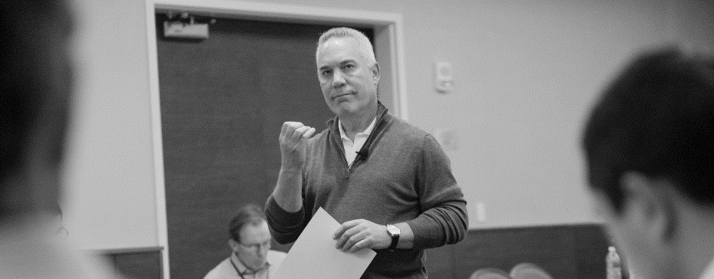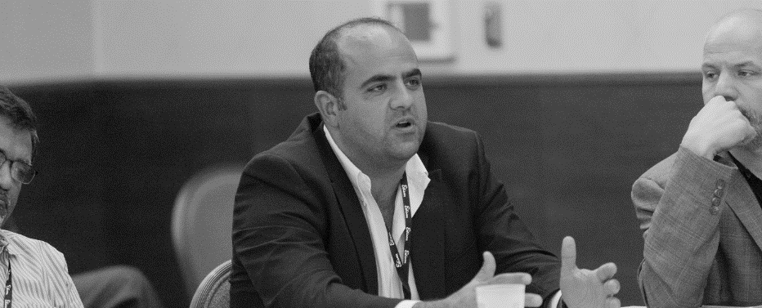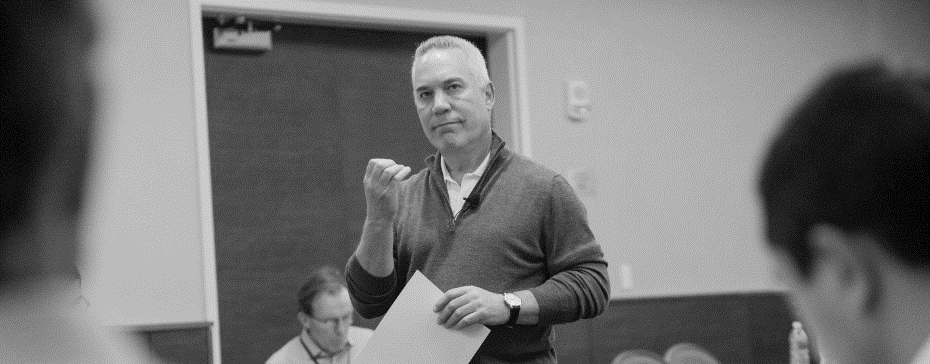Virtually every entrepreneur I know aspires to build a great culture, but most have found that few good guideposts exist on how to actually build one. After hearing this repeated drumbeat from our portfolio companies, at our recent CEO Summit, we ran a masterclass on culture and leadership, facilitated by a real pro – Steven Schloss, Chief People Officer at the US Golf Association, and former HR and Talent executive at LivePerson and Time Inc.
Steve has a fascinating and unique, perspective on building culture and authentic leadership that we will cover in two parts. Part I focuses on building culture.

Building a Great Culture
The verb build implies work – great culture doesn’t just happen, you have to make a conscious effort to build it, and expend willpower to keep it.
Culture starts at the top – the CEO and/or founders.
Espousing values and talking about mission statements are great, but if the founding team doesn’t demonstrate those values in action, all you’ve done is wasted everyone's time. You’ve got to put in the work and live up to that culture every day, and demonstrate to your employees the mindset and values that are important to you.
The best cultures are organic, but that doesn’t mean they shouldn’t be shaped or actively managed. Culture is the connective tissue that keeps the organism running – it is what makes employees stay late at night or open up their laptops after their families go to bed, because they just have to solve the problem they couldn’t crack in the office. Its the driver that helps employees instinctually answer the “what should I do in this situation?” question – and make the right call. Because this 'connective tissue' is so critical to your company, its imperative to nuture it and continually reinforce the elements that make it great.
So culture is important - great. But what kind of culture should you have?
Do you want to be like Apple? Google? Amazon? Steve would argue that this is exactly the wrong question to ask. Instead, ask: What kind of culture can I build? The founders and management team have an inherent set of values, and the culture they set must be authentic to these values.
Your culture won’t be like anyone else’s culture, and its artifacts and rituals will be unique. This doesn’t mean you can’t pick up good ideas from other cultures, but it also means a 'copy-and-paste' of another successful company’s culture is bound to fail. We heard this from David Epstein's session, too: What works for some, doesn't necessarily work for others.

Intersecting People & Culture
Culture is only useful as long as you are able to get your employees to believe in it and buy-in. Not an easy task, but is one that can be made easier by getting the right people “on the bus” to start.
Spend lots of time on your recruiting process.
Think through every step of your recruiting experience – from the initial contact with a candidate, through interviewing, and onboarding. Ask yourself:
- How do you suss out cultural fit, and how can you tune your recruiting process to resonate with the types of candidates you like to hire?
- If you prize speed & quick decisive action in your employees, does your recruiting process reflect that?
- Do you give people quick feedback, rapid response, and a clear path to what it takes to receive an offer?
Although these may seem like trivial aspects, they are the things candidates perceive and what reflects the culture of the organization doing the hiring. Also, be aware that recruiting doesn’t end once the offer is accepted.
Onboarding is critical, and its more than office tours and benefits sessions.
This is where your newest employees are most impressionable and open to learning about your culture. Its the time to immerse (some may say indoctrinate!) them.
Give them full exposure to the whole company, and make sure they understand what is special about your business. One great concept we discussed is to have each new employee give a VC pitch to the team a few days after they are hired. While its only a couple of minutes, it forces the employee to spend his first formative days meeting with people in the company to get a holistic view of the business and understand what the company truly does and how all the pieces fit together.
Hand in hand with building great culture is authentic leadership.

